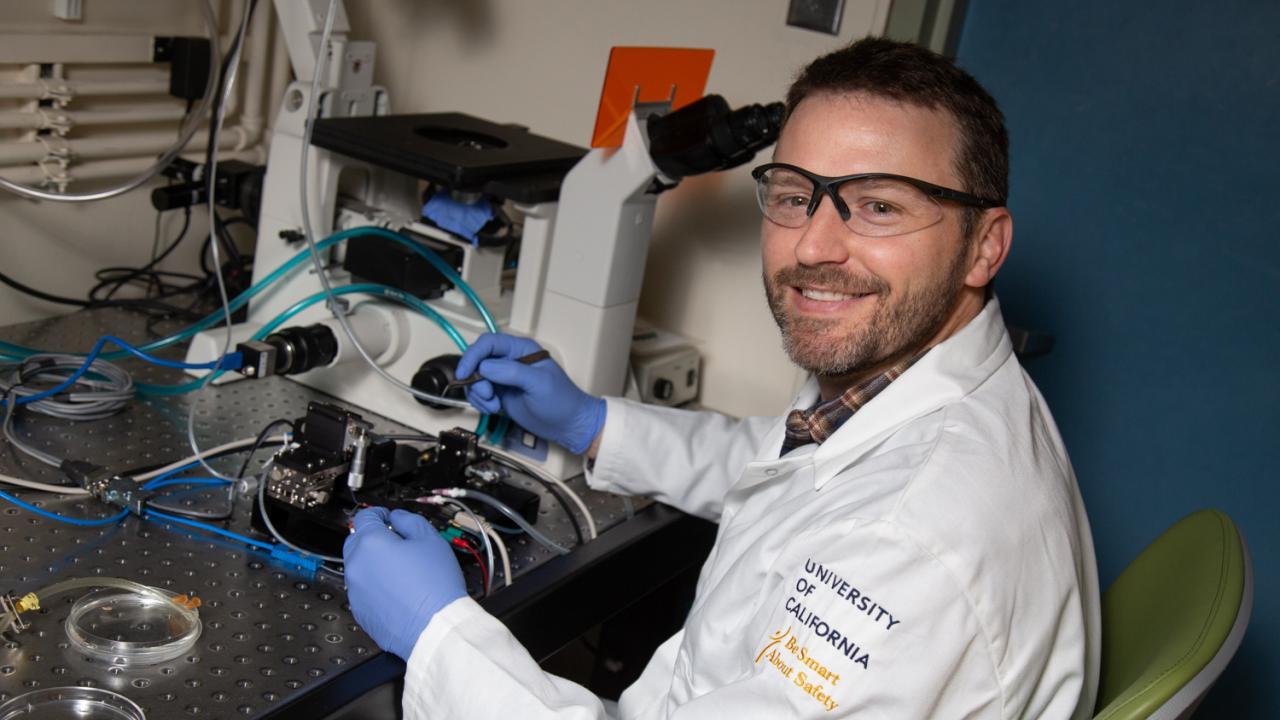
Discovering Curiosity: Fighting Neuromuscular Disorders with New Faculty Lucas Smith
In debilitating neuromuscular disorders, like muscular dystrophies and cerebral palsy, the body’s muscles scar, turning fibrotic and stiff. These skeletal muscles—your biceps,
quadriceps, abdominals and the lot—are integral to your body’s healthy ability to function. Connected to bones and controlled by the nervous system, muscles support a full range of motion, but they can’t do their job if they’re stiff and scarred.
“What’s not really understood is how the scar tissue ends up making such a stiff muscle,” said Assistant Professor Lucas Smith, Department of Neurobiology, Physiology and Behavior. “For us, it might take intense exercise or resistance training to cause a bit of damage, which elicits a regenerative response. In dystrophic conditions, just typical muscle contractions can damage the muscle and that chronic injury leads to fibrosis.”
This ceaseless muscular tearing and regeneration introduces unhealthy scar tissue to the body. In his new lab at UC Davis, Smith, who also holds an appointment in the Department of Physical Medicine and Rehabilitation, investigates how the accumulation of scar tissue affects muscle mechanics. His aim is to develop therapies that alleviate neuromuscular disorders and restore healthy muscle regeneration.
